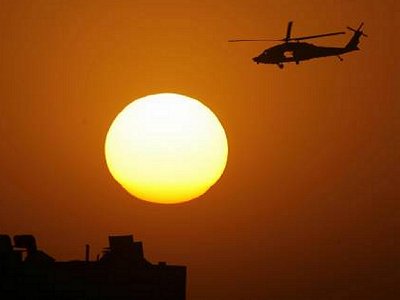
WAR WITHOUT END
The one audit which is never made publicly is the way conflict tempts people to despair of God.
Wilfred Owen described it as the ‘abode of madness’, so how exactly does one convey the insanity of war? Ernest Hemingway, Vasily Grossman and Tim O’Brien each tried with remarkable empathy to describe the darkness in the twentieth century and to their names can be added one of the first from the twenty-first: Kevin Powers. The Yellow Birds (Hodder and Stoughton, 2012) is a visceral account of the war in Iraq by a man who served as a machine gunner with the U.S. army.
Tired of trying to answer the repeated question by curious civilians of what it was like ‘over there’, Powers chose to write a novel to express his ambiguity and his grief. The result is strikingly poetic - leading some to accuse him of indulgence - but the beauty of his prose slows the narrative to the dreamy and fearful pace of heat-ravaged occupied Iraq. The elegance of words used to describe casual barbarity is oddly disarming and the authenticity of the story has led many to assume this is a true account, which it isn’t, though the contours must be recognisable to all who served there.
The treatment of the war in Iraq (as with Afghanistan) has been sparse in literature and drama. This may reflect the nearness of the enterprise and its raw contemporary suffering. Few filmmakers have dared to depict the conflict and the one that stands out, The Hurt Locker, is cautious not to hector or accuse. The war ended badly for the allies; there could be no triumphalism in the manner of the 1991 Gulf War yet those who deliver a sad plot in the cinema lose money. This is why we are unlikely to see much screen drama and why literature from the campaign is our best hope in the quest for honesty and truth.
Perhaps it is too soon to interpret the legacy of what most people feel was a misconceived war with confused aims. Was it about regime change, the capture of destructive weapons or humanitarian relief? The toppling of Saddam and the democratisation of politics (such as it is) exacerbated divisions between Sunni and Shia Muslims, swapping power between the two. If Saddam had remained, perhaps Iraq would also have succumbed to civil war like its neighbour Syria, with the added twist that Saddam’s Ba’ath Party was Sunni, meaning the rebels would have been Shia (and Kurdish) instead. Neo-conservatives may feel that their pre-emptive intervention in Iraq gave the nation a chance to broker political agreements quicker than we are seeing in Syria, but there is no way of knowing. The wider divisions between Sunni and Shia Muslims in the Middle East are already undermining the brittle and sour settlement of Iraq.
In making strategic decisions, it is rare to factor in meaningfully the emotional cost for those who kill or witness killing but it has a profound, hellish effect. The post-traumatic illness of the story’s narrator, John Bartle, shows with perfect clarity the difficulty some soldiers endure when trying to assimilate into civilian life while carrying the memory and guilt of the effect of random violence.
Those who claim such post-traumatic stress is the figment of a pampered generation of rights activists show little empathy for veterans and, critically, for the unsuspecting victims of war in other countries. We are aware of how conflict radicalises some people, but neglect to think hard about the way the majority simply internalise its effects, enduring fear, anxiety and unhappiness for the rest of their lives.
The one audit which is never publicly made is the manner in which war tempts people to despair of God. We meet with God through others, as the parable of the sheep and the goats in Matthew 25 suggests; the kindness and hospitality of strangers is especially powerful in this regard. If that stranger is trying to kill you or inflict pain and suffering on you, a primary medium through which God wishes to meet with you is not just severed, it is utterly despoiled. This kind of calculation is rarely articulated when a nation goes to war with another or with itself but remains the unspoken sadness of conflict; an audit we should always make in our prayers for peace.
POPULAR ARTICLES

Obama's Covert Wars
The use of drones is going to change warfare out of all recognition in the next decades.

Through A Glass Starkly
Images of traumatic incidents caught on mobile phone can be put to remarkable effect.

What Are British Values?
Is there a British identity and if so, what has shaped the values and institutions that form it?


